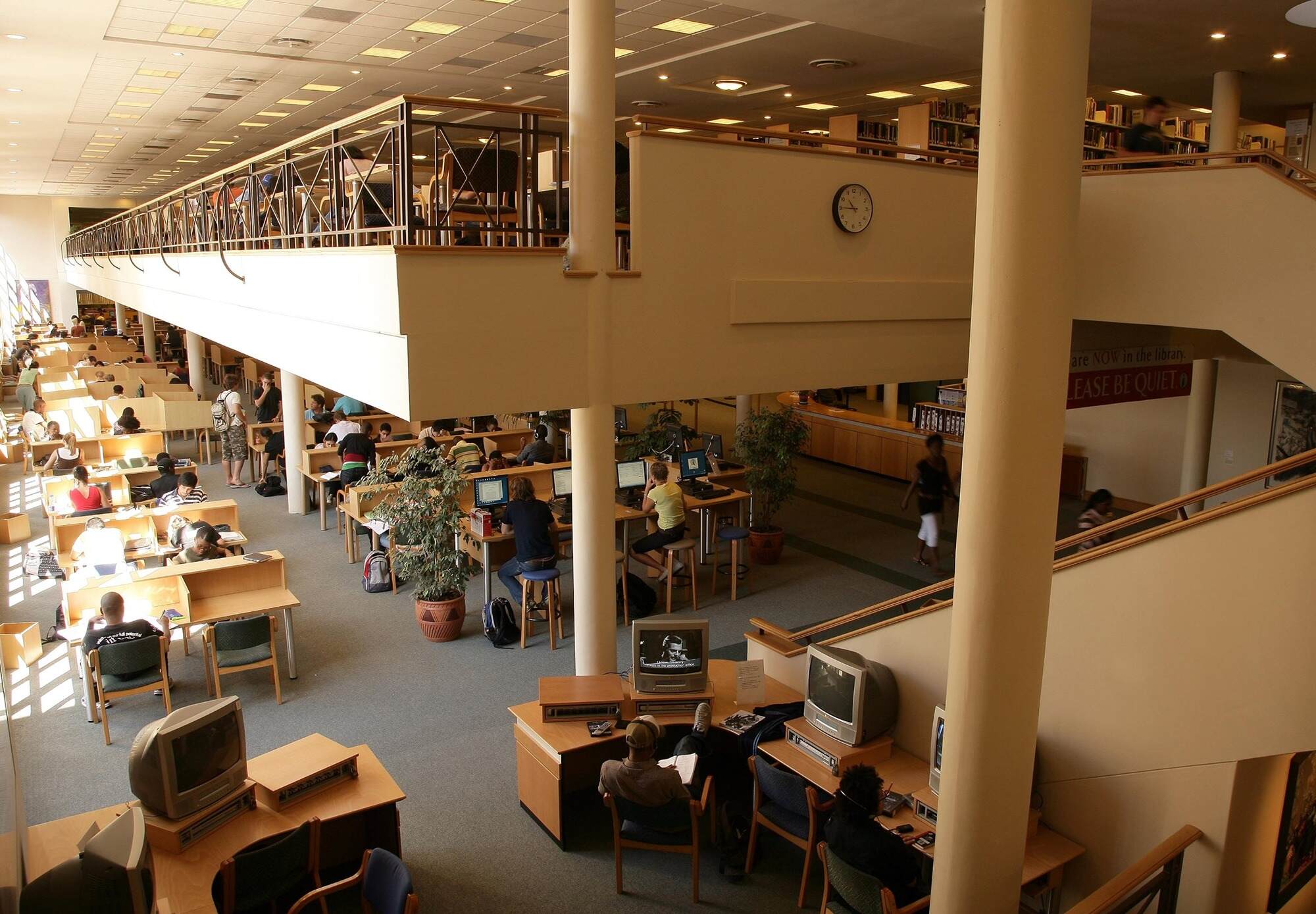
The University of Cape Town Libraries are renowned for their rich history, vast collections, and cutting-edge facilities. As one of the leading academic institutions in Africa, the libraries play a pivotal role in supporting research, teaching, and learning for students, faculty, and scholars from around the world. With a storied past that dates back to the establishment of the University in 1829, these libraries have evolved into a hub of knowledge and intellectual exploration.
In this article, we will delve into 20 astounding facts about the University of Cape Town Libraries that highlight their significance in the academic realm and the treasures they hold. From rare manuscripts and special collections to state-of-the-art digital resources, these libraries offer a wealth of resources and opportunities for both students and researchers. So, let’s embark on a fascinating journey through the secrets and wonders hidden within the walls of the University of Cape Town Libraries.
Key Takeaways:
- The University of Cape Town Libraries house over 3 million books and offer digital resources, specialized collections, and study spaces, making it a hub of knowledge and learning for students and researchers.
- With a focus on African scholarship, collaboration, and modern technology, the University of Cape Town Libraries provide a vibrant and supportive environment for academic exploration and intellectual growth.
The University of Cape Town Libraries house over 3 million volumes of books.
The libraries at the University of Cape Town are home to an impressive collection of over 3 million books, making it one of the largest academic library systems in Africa.
They have a wide range of digital resources.
In addition to their extensive physical collection, the University of Cape Town Libraries offer a wide range of digital resources, including e-books, online journals, and databases, providing students and researchers with access to a wealth of information.
The libraries have a dedicated Special Collections department.
The University of Cape Town Libraries boast a dedicated department known as the Special Collections, which houses rare books, manuscripts, archives, and other valuable materials. This department provides a unique opportunity for scholars and researchers to engage with rare and historical documents.
They have a comprehensive African Studies collection.
Recognizing the importance of African scholarship, the University of Cape Town Libraries have developed an extensive African Studies collection, covering a wide range of topics including history, politics, literature, and culture of the African continent.
There are multiple libraries spread across the university campus.
The University of Cape Town Libraries are not limited to a single building. Instead, they are spread across various locations on the university campus, ensuring easy access for students and staff.
They offer specialized subject librarians.
The University of Cape Town Libraries have a team of specialized subject librarians who provide assistance and guidance to students and researchers in their respective fields. These librarians are experts in their subjects and can help with research strategies and information resources.
The libraries provide access to international research journals.
Through their subscription to various digital databases, the University of Cape Town Libraries offer access to a vast collection of international research journals, enabling students and faculty to stay up-to-date with the latest scholarly publications.
The libraries have a rich collection of South African literature.
As a prominent institution in South Africa, the University of Cape Town Libraries take pride in their comprehensive collection of South African literature, including works by renowned authors such as Nadine Gordimer and J.M. Coetzee.
They have a dedicated space for quiet study.
The University of Cape Town Libraries provide students with designated quiet study areas, ensuring a conducive environment for focused learning and research.
The libraries host regular events and workshops.
Aside from being a repository of knowledge, the University of Cape Town Libraries also serve as a platform for intellectual engagement. They organize various events, workshops, and lectures to promote learning and scholarly discussions.
They offer interlibrary loans.
Through their interlibrary loan service, the University of Cape Town Libraries facilitate access to resources that may not be available in their own collection. This service allows students and researchers to borrow materials from other libraries within the country and globally.
The libraries have advanced technology infrastructure.
The University of Cape Town Libraries are equipped with state-of-the-art technology, including computer labs, online catalog systems, and digital research tools, providing students with modern facilities to support their academic pursuits.
They collaborate with other libraries and institutions.
The University of Cape Town Libraries actively engage in collaborative initiatives with other libraries and institutions, both locally and internationally. This collaboration enhances resource sharing, access to specialized collections, and research opportunities.
They offer guidance on academic referencing and citation.
Recognizing the importance of proper academic referencing, the University of Cape Town Libraries provide guidance and support to students on how to correctly cite and reference sources in their research papers and assignments.
The libraries have comfortable study spaces.
The University of Cape Town Libraries offer a range of study spaces, catering to different studying preferences. From individual study carrels to group study rooms, students can find the perfect space to suit their needs.
They provide access to online learning resources.
Besides their vast collection of books and journals, the University of Cape Town Libraries also provide access to a variety of online learning resources, such as video lectures, educational podcasts, and academic databases.
The libraries have dedicated spaces for collaborative work.
Recognizing the importance of collaborative work, the University of Cape Town Libraries have designated areas for group study and collaboration, equipped with interactive whiteboards and multimedia facilities.
They support open access initiatives.
The University of Cape Town Libraries are actively engaged in promoting open access initiatives, making scholarly research more accessible to the public and advocating for the dissemination of knowledge without barriers.
They offer assistance with research data management.
The University of Cape Town Libraries provide guidance and support to researchers in managing their research data, ensuring data integrity, and complying with ethical and legal requirements.
The libraries have a comprehensive range of online tutorials.
To support students in developing their research and information literacy skills, the University of Cape Town Libraries offer a comprehensive range of online tutorials and guides, helping students navigate the research process more effectively.
Conclusion
The University of Cape Town Libraries are a treasure trove of knowledge and innovation. With their extensive collections, state-of-the-art facilities, and dedication to serving the academic community, these libraries play a crucial role in supporting research, learning, and cultural enrichment.
From their historical significance to their cutting-edge digital resources, the University of Cape Town Libraries have become an unparalleled resource for students, academics, and researchers alike. Whether you’re exploring the archives, accessing digital databases, or simply finding a quiet corner to study, these libraries offer an incredible environment for intellectual growth and exploration.
So, whether you’re a current student, a prospective researcher, or just a curious visitor, don’t miss the opportunity to experience the awe-inspiring world of the University of Cape Town Libraries.
FAQs
1. What are the opening hours of the University of Cape Town Libraries?
The opening hours of the University of Cape Town Libraries may vary between different branches and during different semesters. It is best to check the library’s website or contact them directly for up-to-date information on their opening and closing times.
2. Can non-students access the University of Cape Town Libraries?
Yes, non-students can access the University of Cape Town Libraries. The libraries welcome visitors and offer various membership options for those who are not affiliated with the university.
3. How can I borrow books from the University of Cape Town Libraries?
To borrow books from the University of Cape Town Libraries, you need to be a registered member. Students and staff of the university can borrow books using their university ID cards, while non-members can apply for a library membership and follow the borrowing procedures specified by the library.
4. Can I access digital resources from off-campus?
Yes, the University of Cape Town Libraries provide remote access to their digital resources. Students, staff, and authorized members can access these resources from anywhere with an internet connection using their login credentials.
5. How do I request a book from the University of Cape Town Libraries?
To request a book from the University of Cape Town Libraries, you can search for the desired item in the online catalog and place a hold on it. Once the book is available, you will receive a notification to collect it from the designated library branch.
Delving into the world of education, you'll find even more intriguing facts waiting to be discovered. From the diverse educational facilities in Clifton, New Jersey, to the storied history of UCT, there's no shortage of knowledge to uncover. If you're curious about higher education in other parts of the globe, the University of Warsaw also holds its share of surprises. So why not continue your journey of learning and explore these captivating topics next?
Was this page helpful?
Our commitment to delivering trustworthy and engaging content is at the heart of what we do. Each fact on our site is contributed by real users like you, bringing a wealth of diverse insights and information. To ensure the highest standards of accuracy and reliability, our dedicated editors meticulously review each submission. This process guarantees that the facts we share are not only fascinating but also credible. Trust in our commitment to quality and authenticity as you explore and learn with us.


